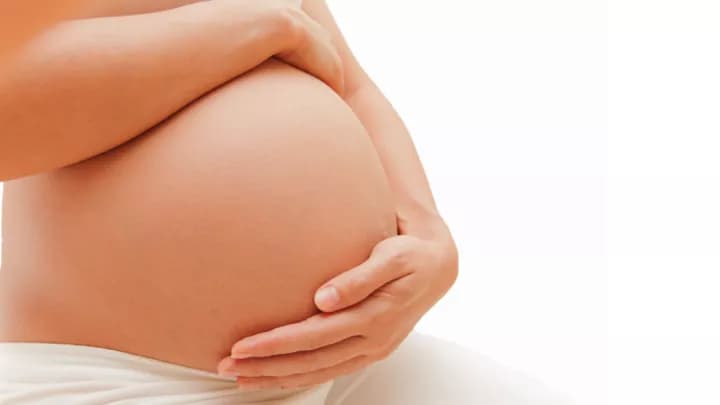
Pregnancy After Breast Cancer Does Not Increase Chance of Recurrence
CHICAGO – Findings from a retrospective study of 1,200 women provide reassurance to breast cancer survivors who are contemplating pregnancy. In the study, women who became pregnant after an early breast cancer diagnosis, including those with estrogen receptor (ER)-positive tumors, did not have a higher chance of cancer recurrence and death than those who did not become pregnant.
The study will be featured in a press briefing today and presented at the 2017 American Society of Clinical Oncology (ASCO) Annual Meeting.
Breast cancer is the most common cancer in women of reproductive age. Taking into account current trends toward delaying childbearing, breast cancer in young women may occur before the completion of reproductive plans. Although half of young women with newly diagnosed breast cancer report interest in having children, less than 10% become pregnant after treatment.1 In fact, of all cancer survivors, breast cancer survivors are the least likely to have a baby after diagnosis.
Doctors and patients have long been concerned that pregnancy could increase the chance of breast cancer recurrence, particularly for women with ER-positive disease. Because ER-positive breast cancer is fueled by estrogen, the fear is that hormone levels during pregnancy could coax any occult cancer cells – those that may remain in the body after treatment – to grow.
Another concern regarding pregnancy in women with ER-positive cancer is the need to interrupt adjuvant (post-surgery) hormone therapy before trying to achieve a pregnancy. Such hormone therapy helps prevent cancer recurrence, and it is recommended that women receive it for at least 5 years and in some cases up to 10 years.
“Our findings confirm that pregnancy after breast cancer should not be discouraged, even for women with ER-positive cancer,” said lead study author Matteo Lambertini, MD, a medical oncologist and ESMO fellow at the Institut Jules Bordet in Brussels, Belgium. “However, when deciding how long to wait before becoming pregnant, patients and doctors should consider each woman’s personal risk for recurrence, particularly for women who need adjuvant hormone therapy.”
About the Study
With 1,207 patients, this is the largest study to investigate the safety of pregnancy after breast cancer and the only to address this question specifically in women with ER-positive breast cancer (the most common type of breast cancer), according to the authors.This study included women who were diagnosed with non-metastatic breast cancer before 2008, under the age of 50. The majority (57%) had ER-positive cancer, and more than 40% had poor prognostic factors, such as large tumor size and cancer spread to the axillary lymph nodes. Among the 1,207 patients included in the study, 333 of the women became pregnant, and 874 did not (as per the case-control study design, researchers matched each patient who became pregnant with three patients who had similar cancer characteristics but did not become pregnant).
The median time from diagnosis to conception was 2.4 years. Women with ER-positive breast cancer tended to achieve pregnancy later than those with ER-negative disease; 23% of patients with ER-positive disease had a pregnancy beyond 5 years from diagnosis as compared to 7% in those with ER-negative tumors.
Key Findings
After a median follow-up of about 10 years from cancer diagnosis, there was no difference in disease-free survival between women who became pregnant and those who did not, irrespective of ER status. Secondary analyses showed that there was no difference in disease-free survival compared to women who did not become pregnant, irrespective of whether women completed the pregnancy or had an abortion, became pregnant less than two years or more than two years from breast cancer diagnosis, and whether patients had breastfed.Among survivors of ER-positive cancer, there was also no difference in overall survival between women who became pregnant and those who did not. Survivors of ER-negative breast cancer who became pregnant had a 42% lower chance of dying than those who did not become pregnant.
“It’s possible that pregnancy could be a protective factor for patients with ER-negative breast cancer, through either immune system mechanisms or hormonal mechanisms, but we need more research into this,” said Dr. Lambertini.
Although there was limited data on breastfeeding in this study (64 patients, with 25 women who reported having breastfed their newborn), the results suggest that breastfeeding is feasible, even after breast surgery.
Next Steps
Although large, this study had limited information on the use of assisted reproductive technologies (such as in vitro fertilization) in breast cancer survivors, and HER2 status was unknown for about 80% of the women. Further research is also needed to study the effect of pregnancy on health outcomes of women with BRCA mutations, a group that generally develops breast cancer at a younger age.A large clinical trial (the POSITIVE study) is under way investigating the impact of interrupting adjuvant hormone therapy to allow for pregnancy in women with ER-positive breast cancer. This study will also provide further insight on the impact of reproductive technologies and breastfeeding.
This study was partly supported by grants from Les Amis de l’Institut Bordet (grant number 2012-09) and the European School of Oncology (ESO). The International Breast Cancer Study Group (IBCSG) study, which provided patient information for this study, was partially funded by the National Institutes of Health (grant number CA-753562).
View the full abstract.
Materials provided by American Society of Clinical Oncology. Note: Content may be edited for style and length.
Disclaimer: DoveMed is not responsible for the accuracy of the adapted version of news releases posted to DoveMed by contributing universities and institutions.
Related Articles
Test Your Knowledge
Asked by users
Related Centers
Related Specialties
Related Physicians
Related Procedures
Related Resources
Join DoveHubs
and connect with fellow professionals

0 Comments
Please log in to post a comment.